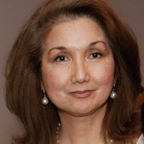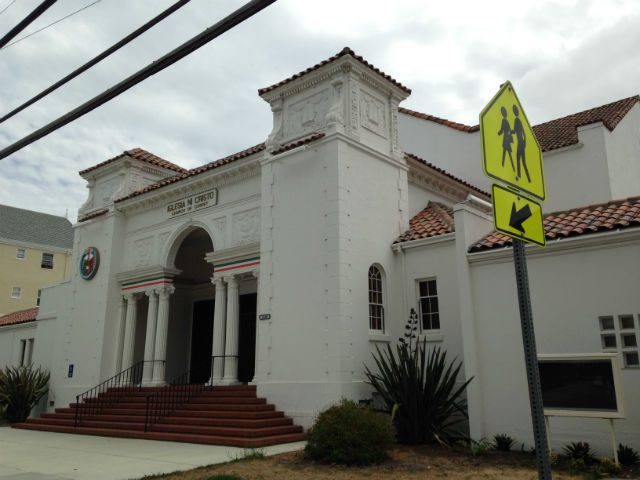SUMMARY
This is AI generated summarization, which may have errors. For context, always refer to the full article.
 What actually happened behind the walls of the Iglesia ni Cristo Church in Quezon City may remain locked in the conscience of those who were actually involved in the series of events involving top INC officials, middle ministers, and the media in the Philippines.
What actually happened behind the walls of the Iglesia ni Cristo Church in Quezon City may remain locked in the conscience of those who were actually involved in the series of events involving top INC officials, middle ministers, and the media in the Philippines.
Even the response of Philippine authorities has everyone puzzled.
Just hours after the National Bureau of Investigation last week declared the case closed, having found “no evidence” of criminal conduct, the Secretary of Justice told reporters the case was still open until all questions had been answered. (READ: NBI on the Iglesia ni Cristo abduction: Case closed)
Such a situation might never have occurred to Felix Manalo when he declared himself a prophet and founded what he believed to be the “one true church” in 1914. (READ: INFOGRAPHIC: The Manalos of Iglesia ni Cristo)
“The Iglesia ni Cristo is not a denomination or a sect. It is neither affiliated with any federation of religious bodies nor itself an assembly of smaller religious organizations,” the INC states on it website. “The Church of Christ adheres to the unadulterated teachings of God and of the Lord Jesus Christ written in the Bible. The faithful firmly believe that this Church is the fulfillment of biblical prophecies on the true Church or Christ in these last days for man’s salvation.” (READ: INFOGRAPHIC: What you need to know about the Iglesia ni Cristo)
Some of us remember no other time when the INC bore this much exposure.
As a child, I marveled at the eye-popping ramparts of a mansion on the way to dawn Masses leading up to Christmas Day with pious Catholic aunts and elder cousins always stressing that the property belonged to the wealthy and powerful group called the Iglesia. The San Juan City road is now called F. Manalo Street.
Born and raised Catholic, I knew nothing and still know little about the INC. I’m not sure how it differs from the faith to which my parents assigned me, though the supremacy of males appears to be a commonality.
The little I knew about the INC I learned from a classmate, a feisty woman and the only daughter in a loving brood of 4. Not once did I see her with a strand of hair out of place or a wrinkle in her uniform. She was just like her mom, a jeweler who typically had her hair in a French twist.
Her family ran a taxi fleet, among other successful businesses. She was one of the first in my class to learn to drive. Although she did not talk much about her church, she and the family clearly were devoted to the INC. We continued our friendship after she moved to Texas and I, to California.
I saw her as one of us, her religion’s repudiation of the Blessed Virgin Mary and the saints notwithstanding. Why others muttered negatively behind her back, I could not understand then but have a better idea now.
Let’s not kid ourselves: Catholicism rules the Philippines. Despite the rise of faith-based organizations headed by former flock, Roman Catholics hold sway across the archipelago even to many parts of Mindanao, where Islam is perhaps most influential.
Unlike the dominant Catholic Church, “minority” movements like the Iglesia ni Cristo tend to operate under the radar. And successfully so, given the remarkable expansion of the INC and the charismatic group El Shaddai, to name a few.
The Iglesia ni Cristo is far and away the biggest faith-based community in the world to have originated in the Philippines. The church claims as much: “Today, the membership of the Iglesia Ni Cristo comprises at least 110 nationalities. It maintains about 104 ecclesiastical districts in the Philippines and in 100 more countries and territories,” it says on its website.
Their church spires rise above towns in Asia and the Pacific, Europe and North America.
Wherever we traveled in Europe, especially where Filipinos proliferate, we found ourselves chatting with overseas workers who would point to their church as their source of strength and hope. More often than not, that was the Iglesia ni Cristo.
From visitors from Daly City experiencing the grandeur of Versailles to French-speaking contractors building extensions to flats in Paris, Filipinos credited their “kapatid (brethren),” for thriving in the City of Light.
The same held true in Barcelona, Amsterdam and Athens.
For years, the church’s iconic Gothic architecture lorded the skyline in Daly City, California. The INC’s former national headquarters on Southgate Avenue looked across the street at Serramonte Center, the other landmark and unofficial community center of Filipinos in the US mainland city where they are most populous.
The church has since moved its flagship south of the San Francisco Bay Area to the more affluent town of Burlingame. The imposing building towers over tree-lined family-friendly Oak Grove Avenue, where young mothers and babies take frequent walks for an afternoon to the children’s park on the corner of El Camino Real. A couple of blocks south is hip Burlingame Avenue, “downtown” to residents of Hillsborough toward the hilly west.
Equally famous as the church’s majestic houses of worship are its members’ unity. INC members are known to follow leaders with implicit trust, hence the courtship of political aspirants who covet the spread an INC endorsement guarantees. Observe how officials react between now and May 2016.
“The Iglesia ni Cristo exhorts its members toward perfect unity of faith and practice, that each one will be devoted to a life of holiness and service founded on true Christian teaching,” the INC proclaims on its website.
Its solidarity is legend, hence public reaction exploded when the mother and younger brother of executive minister Eduardo Manalo went on cyberspace, appealing for help, claiming their lives were in danger. The incident triggered protests and alleged expulsions and resignations of ministers in the Philippines and here in the United States. (READ: Sign outside INC building: ‘Tulong. Hostage kami’)
The story seems to have subsided where it started, though a resulting protest rally at the Burlingame HQ that reportedly involved gunfire is still under investigation.
While reaction blazed on the Internet, Fil-Am and INC leaders sealed their lips.
Not one of the elected Filipino Americans we invited to weigh in consented to be quoted. An INC member who was a top manager of a Philippine corporation did not return Rappler’s request for an interview.
The only one willing to speak for the record, interestingly, was Reverend Father Mark Reburiano, a Roman Catholic and pastor of St Isabella Church in San Rafael, north of San Francisco.
“Although I’m not so familiar with the Iglesia ni Cristo and the issues they have now, from what I get and read, it is really normal that an organization will have or will pass to a difficult stage like this,” said Reburiano, who studied Theology for 10 years in Rome.
He added: “A church or a so-called spiritual organization is not spared from trying times. But just like in the experience of the Catholic Church, it is through these challenges that the Church becomes stronger, and in seeing her flaws the Church will be able to purify herself. I hope the INC will pass this stage by committing to a fair and honest solution so it can continue its mission: to be instruments of the salvific plan of Christ.”
San Francisco Bay Area INC Brother Ernie Tugaff did reply to the author when the story first broke.
“All (the negative statements issued against the church) are untrue,” he said. “We have aired our side on Youtube. Please take a look at it for our official statement. ”
The church’s response intersperses newsclips from the time Angel Manalo went on cyberspace seeking support for him and his mother Tenny Manalo allegedly in fear for their lives, to the visits of law and city officials including Quezon City Mayor Herbert Bautista, who said they did not think any crime had been committed – though they were barred from entering the compound.
Angel Manalo later re-emerged and revised his story. He denied having said that his and his mother’s lives were in danger. Yes, a hand did post a sign in the window of the INC in Quezon City, and that was a child playing a joke, he said. On whom, he did not clarify. (READ: INC followers weigh in on Angel Manalo’s claims)
The series of events took place just as the church was heading toward its 101st anniversary on July 27. Celebration in the US was set in Washington, Brother Tugaff told author.
“Kapatid” from all over the world posted greetings on the church’s Facebook page. This anniversary indeed was a milestone and more. – Rappler.com
Cherie M Querol Moreno is a keen observer of the evolving Filipino American community in the San Francisco Bay Area, subject of her 30 years of reporting for and editing Filipino American publications. She founded and directs the family violence prevention nonprofit ALLICE Alliance for Community Empowerment and sits on the San Mateo County Commission on Aging. ‘Unbound’ is her long-running column which will now publish regularly on Rappler.
Add a comment
How does this make you feel?
There are no comments yet. Add your comment to start the conversation.